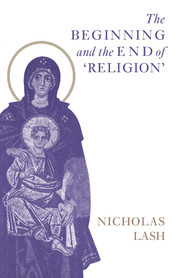1 - The beginning and the end of ‘religion’?
Published online by Cambridge University Press: 05 March 2012
Summary
THE FIELD OF GOD'S WHISPERING
Every Teape Lecturer is invited to reflect upon ‘The Upanishads in the Catholic Church’, but the field, or context of reflection, varies, as do the individual lecturers who seek, upon that field, to find their way, to gain some knowledge (to take the thirteenth chapter of the Gita as an allegory).
I shall, in these three lectures, have something to say about religion at the ending of the ‘modern’ world; about prophecy, and peace, and justice; and about the mystery of God, the mystery that is reality, and wisdom, and delight. Before setting out upon the journey, however, I want briefly to identify the speaker and the background against which he speaks.
First, the background, which (in my judgement) is the need to keep continually in mind the way in which this world of ours, however it arose, has now become, to an extent that was unimaginable even a few decades ago, one single complex fact, one seamless web of cause and consequence. This oneness of our world is, moreover, increasingly the oneness of an artefact: an expression of human energy, and ingenuity, and greed. Pollution of the air and sea, deforestation, annihilation of innumerable species, exhaustion of non-renewable resources: all these are things that human beings do. It is increasingly the case that famine and disease and destitution are disasters no more ‘natural’ than is the collapse of a dwelling which the landlord had neglected to repair.
- Type
- Chapter
- Information
- The Beginning and the End of 'Religion' , pp. 3 - 25Publisher: Cambridge University PressPrint publication year: 1996
- 1
- Cited by



